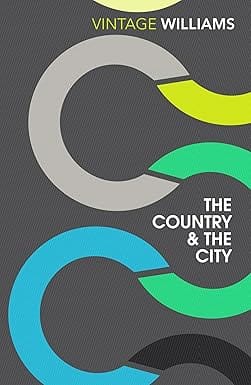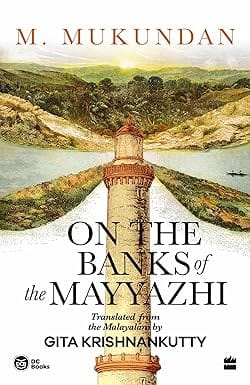- Contemporary Fiction
- Contemporary Fiction
- Children
- Children
- Comics & Graphic Novels
- Comics & Graphic Novels
- Non-Fiction
- Non-Fiction
- Fiction
- Fiction
Taking inspiration from classic authors from Jane Austen to Thomas Hardy, Williams shines a light on our society's changing views of the rural and industrial landscapes in which we work and live. Our collective notion of the city and country is irresistibly powerful.
Review
While written with the energy of political engagement, it is a critically generous book... Even where you would read something differently, there is space to disagree
-- John Mullan - GuardianHis complex character, indeed his whole life, was held together by two qualities - scholarship and political conviction - which made him a major influence on three decades of political thought - Independent
I went back to my own edition of The Country and the City... Certain books are held dear because they are also psychic landmarks revealing where and how they helped us come into consciousness. Inevitably, our perception of the world continues to be informed by such texts long after the precise details of their contents have been forgotten. -- Geoff Dyer - New Statesman
He was the foremost political thinker of his generation in Britain who in his most formidable books, Culture And Society, The Long Revolution and The Country and the City, redrew the map of our cultural history, and elsewhere made heroic interventions in the main political debates of his time - Guardian
The first thing that struck me about this book when I read it as an undergraduate was the personable charm of the narrator. Embarking on a topic which could hardly be broader or grander: the study of how literature has described the world; he starts with his own country, with his own city. His emotion about his birthplace his sense of belonging, is so powerful, that the book reads at times like an autobiography, like a love-letter to the country of his childhood -- Philippa Gregory - Independent
About the Author
Raymond Williams was born in 1921 in the Welsh border village of Pandy, and was educated at the village school, at Abergavenny Grammar School, and at Trinity College, Cambridge. After serving in the war as an anti-tank captain, he became an adult education tutor in the Oxford University Delegacy for Extra-Mural Studies. In 1947 he was an editor of Politics and Letters, and in the 1960s was general editor of the New Thinker’s Library. He was elected Fellow of Jesus College, Cambridge, in 1961 and was later appointed Professor of Drama.
His books include Culture and Society (1958), The Long Revolution (1961) and its sequel Towards 2000 (1983); Communications (1962) and Television: Technology and Cultural Form (1974); Drama in Performance (1954), Modern Tragedy (1966) and Drama from Ibsen to Brecht (1968); The English Novel from Dickens to Lawrence (1970), Orwell (1971) and The Country and the City (1973); Politics and Letters (interviews) (1979) and
- Home
- Literature & Fiction
- The Country And The City
The Country And The City
SIZE GUIDE
- ISBN: 9781784870829
- Author: Raymond Williams
- Publisher: Vintage
- Pages: 512
- Format: Paperback
Book Description
Taking inspiration from classic authors from Jane Austen to Thomas Hardy, Williams shines a light on our society's changing views of the rural and industrial landscapes in which we work and live. Our collective notion of the city and country is irresistibly powerful.
Review
While written with the energy of political engagement, it is a critically generous book... Even where you would read something differently, there is space to disagree
-- John Mullan - GuardianHis complex character, indeed his whole life, was held together by two qualities - scholarship and political conviction - which made him a major influence on three decades of political thought - Independent
I went back to my own edition of The Country and the City... Certain books are held dear because they are also psychic landmarks revealing where and how they helped us come into consciousness. Inevitably, our perception of the world continues to be informed by such texts long after the precise details of their contents have been forgotten. -- Geoff Dyer - New Statesman
He was the foremost political thinker of his generation in Britain who in his most formidable books, Culture And Society, The Long Revolution and The Country and the City, redrew the map of our cultural history, and elsewhere made heroic interventions in the main political debates of his time - Guardian
The first thing that struck me about this book when I read it as an undergraduate was the personable charm of the narrator. Embarking on a topic which could hardly be broader or grander: the study of how literature has described the world; he starts with his own country, with his own city. His emotion about his birthplace his sense of belonging, is so powerful, that the book reads at times like an autobiography, like a love-letter to the country of his childhood -- Philippa Gregory - Independent
About the Author
Raymond Williams was born in 1921 in the Welsh border village of Pandy, and was educated at the village school, at Abergavenny Grammar School, and at Trinity College, Cambridge. After serving in the war as an anti-tank captain, he became an adult education tutor in the Oxford University Delegacy for Extra-Mural Studies. In 1947 he was an editor of Politics and Letters, and in the 1960s was general editor of the New Thinker’s Library. He was elected Fellow of Jesus College, Cambridge, in 1961 and was later appointed Professor of Drama.
His books include Culture and Society (1958), The Long Revolution (1961) and its sequel Towards 2000 (1983); Communications (1962) and Television: Technology and Cultural Form (1974); Drama in Performance (1954), Modern Tragedy (1966) and Drama from Ibsen to Brecht (1968); The English Novel from Dickens to Lawrence (1970), Orwell (1971) and The Country and the City (1973); Politics and Letters (interviews) (1979) and
User reviews
NEWSLETTER
Subscribe to get Email Updates!
Thanks for subscribing.
Your response has been recorded.

India's Iconic & Independent Book Store offering a vast selection of books across a variety of genres Since 1978.
"We Believe In The Power of Books" Our mission is to make books accessible to everyone, and to cultivate a culture of reading and learning. We strive to provide a wide range of books, from classic literature, sci-fi and fantasy, to graphic novels, biographies and self-help books, so that everyone can find something to read.
Whether you’re looking for your next great read, a gift for someone special, or just browsing, Midland is here to make your book-buying experience easy and enjoyable.
We are shipping pan India and across the world.
For Bulk Order / Corporate Gifting
 +91 9818282497 |
+91 9818282497 |  [email protected]
[email protected]
Click To Know More
INFORMATION
QUICK LINKS
ADDRESS
Shop No.20, Aurobindo Palace Market, Near Church, New Delhi














